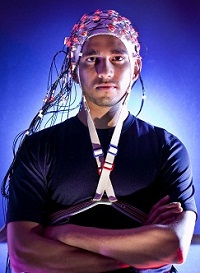There’s a famous quote that’s been doing the rounds for a few years from the US Department of Labor.
65% of the kids at school today will end up in jobs that have not yet been invented
Accurate or not, there’s no doubt that those responsible for designing education systems are facing some real challenges. After all, how do you teach students effectively if you’ve got no idea of the skills they need to be successful?
With an uncertain future, the one thing that is clear is that there are opportunities for us to improve the system of education that’s in place and which hasn’t, in many cases, changed for decades. I’m coming across increasing numbers of articles online about the challenges – for example here and here. Now, I’m far from an expert in this area. But as a keen advocate of the disruptive potential of Massive Open Online Courses (or MOOC’s, as they’ve become known) (tip: check out Steve Blank’s excellent ‘How To Build A Startup’ course on Udacity) and the author of an MBA dissertation on open access publishing, I’m pretty certain that removing the barriers to learning that currently exist can only be a good thing.
Knewton And Adaptive Learning
When I was in Glasgow at the Digital 2013 conference last week, Tom Hall (@tomjhall) from Pearson introduced me to something that had – somehow – passed me by so far. Knewton is an adaptive learning platform that provides personalised educational content. It accumulates data from students as they move through the learning process and then uses that information to make the process more effective by personalising the experience for each individual.
The net result is that the curriculum adapts to the needs of each user directly and then pieces together the perfect individual bundle of content for each student. To put it simply: if it works well, more people will be more engaged and therefore successful at learning as they will be presented with the information (and subsequently tested on it) in a way that suits them, as opposed to the ‘one-size-fits-all’ mentality that we’ve been forced to adapt up until today.
Big Data And Education
To me, it sounds like a no-brainer. It’s a fascinating use of Big Data (there’s that buzz word again) that has the potential to create significant change for the better on a massive scale. What’s great is that the success should be organic: the more students that use the platform, the better the experience should become. In the same way that search engines benefit from critical mass, the more information there is, the more accurate the personalisation to each student. Check out the video below for a bit more information.
Losing The Human Touch?
Of course, not everyone agrees. After digging around a little further online for information, I came across a fascinating and incredibly detailed blog post by Phil Macrae, a Canadian ‘explorer in the field of education’. Please do give it a read for a far more insightful commentary on the area than I could ever provide here. It provides a considered warning to such tech-evangelists (…guilty) against the simple replacement of the human dimension of learning with a ‘teaching machine’.
I’m relatively new to this subject so I have to remain open to persuasion. But it’s clear that Knewton are making waves. So far, they’ve attracted the notice of some pretty heavyweight players, including Pearson and investment from the Founders’ Fund and they’ve been recognised as a Technology Pioneer by the World Economic Forum in Davos (following in the footsteps of companies like Twitter, Firefox and Paypal).
The Potential Of Personalisation
It’s hard to say what education will look like in the future. Information is increasingly become simple to store and retrieve, disrupting the traditional methods that have been employed for many years. So it’s easy to believe that, like so many other areas of real life, personalisation must come into play whilst technology continues to drive down the costs. And that – surely – can only be a good thing.
Regardless of whether it’s likely to succeed or doomed to failure, as both a bystander and a parent, I can only be in favour of Knewton and what they’re looking to achieve. Whether they are the ones who actually succeed, by going after such an audaciously large goal, or simply prove to be the first of a new wave of technologies however still remains to be seen.
Do you think that technology will ever replace the need for classroom-based teaching entirely? Or would relying on technology too heavily within a learning environment actually damage the process? I’d be interested to hear your comments below.
photo credit: University of Maryland Press Releases via cc


5 thoughts on “How Adaptive Learning Could Change Education Forever”
Comments are closed.